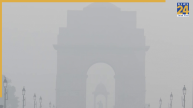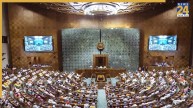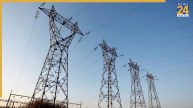Did the Narendra Modi-led NDA government violate the Constitution while introducing the 129th Constitution Amendment bill to Lok Sabha Tuesday? How could it table the One Nation One Election bill as it is called, on the floor of the house after the division did not show a two-thirds majority in its favour? Can a Constitution Amendment bill be introduced to the Parliament without the “special” majority?
According to Clauses 72(1) and 72(2) of the Rules of Procedure and Conduct of Business in the Lok Sabha, any member can give prior notices opposing the introduction of a Bill.
Division Vote Does Not Show Special Majority
Congress MP Manish Tewari and some other members gave an advance notice to Speaker Om Birla informing him that they would oppose the bill on the house floor. They also demanded a division of votes when the bill was tabled. While 269 members favoured the introduction of the One Nation One Election bill, 198 voted against it.
Also Read: Congress-Led INDIA Bloc Rallies To Oppose ‘One Nation, One Election’ Bill on Federalism Grounds
Slamming the government, Congress MP Sashi Tharoor pointed out that the NDA did not have two-thirds majority, required for a Constitution Amendment bill.
What Is Special Majority?
According to former Lok Sabha General Secretary PDT Achary, a “special” majority, which means more than half of the total strength of the House and more than two-thirds of the members present and voting, is not required for tabling a Constitution Amendment bill.
He has also said that a special majority is not required while a motion is moved to send a Constitution Amendment bill to the Joint Public Committee or the Select Committee. It is required at a later stage when it is put to vote for passage in the House.
Put, a two-thirds majority is required for approval of a Constitution Amendment bill, but it is not required while tabling the bill and sending it to the JPC or the Select Committee.
What Does Constitution Say?
On the other hand, Constitution experts M N Kaul and S L Shakdher have written in their book “Practice and Procedure of Parliament” that the “special” majority is required only for the bill’s approval. However, taking a precautionary note, this kind of majority is needed at all stages, like the bill’s introduction, its further reading, sending it to the JPC or the Select Committee, and putting it to the vote.
Also Read: Pandora’s Box: BJP Pushes For Sweeping Constitutional Changes To Enable ‘One Nation, One Election’
However, Rule 157 of the Rules of Procedure and Conduct of Business in Lok Sabha lays down the conditions for a Constitution Amendment bill more clearly.
It says that a Constitution Amendment bill may be introduced to the House to elicit interest, it may be reported to the Select Committee or the JPC, amendment to the bill may be accepted and finally the bill may be deemed approved when it gets the support of more than half of the total number of the House and more than a two-third majority of the members present and voting.
Provisions In Rules 157, 158
Rule 158 of the Rules of Procedure and Conduct of Business in Lok Sabha says, “Voting shall be by division whenever a motion has to be carried by a majority of the total membership of the House and by a majority of not less than two-thirds of the members present and voting.”
This rule makes the use of “special” majority clear in the most unambiguous terms. It says, “If the result of the voting shows that the majority of the total membership of the House and the majority of not less than two-thirds of the members present and voting are in favour of the motion, the Speaker shall, while announcing the result, say that the motion is carried by a majority of the total membership of the House and by a majority of not less than two-thirds of the members present and voting.”
Going by Rules 157 and 158 of the Rules of Procedure and Conduct of Business in Lok Sabha, it may be said that the government did not adhere to the rule book.
What May Happen In JPC?
Hitting at the union government, Congress MP Manickam Tagore took to social media platform X. He wrote in a post, “Two-thirds majority (i.e., 307) was needed out of the total 461 votes… but the government secured only (269), while the opposition got 198. The ‘One Nation, One Election’ proposal failed to gain two-thirds support.”
Law Minister Arjun Meghwal has said that the 129th Constitution Amendment bill may be sent to the JPC.
However, things become clear by the comment made by Shashi Tharoor, who wrote on the social media platform, “In the JPC, however, they may even have a majority in terms of the composition of the JPC but to pass it as a constitutional amendment, you need a 2/3 majority that they very clearly don’t have. They should not persist too long with this…”
The motion to report the bill to the JPC would require the special majority, which the government apparently does not have. What the government will do now?












